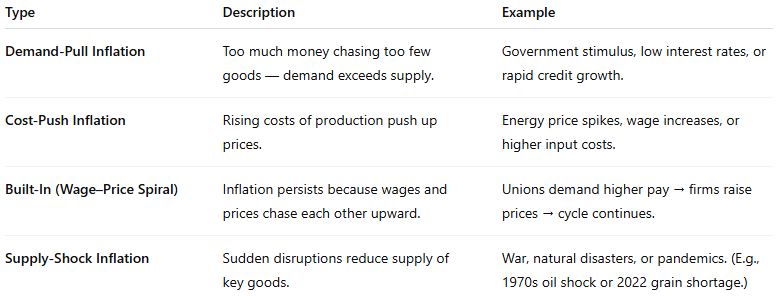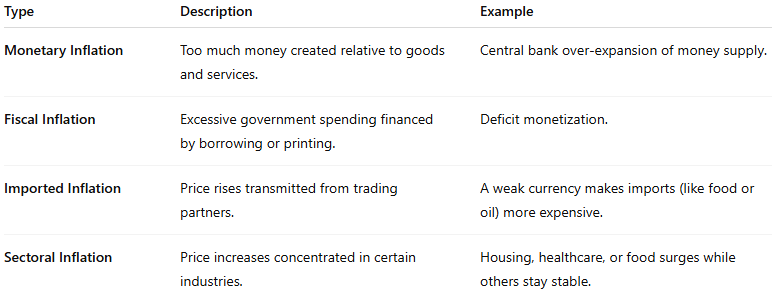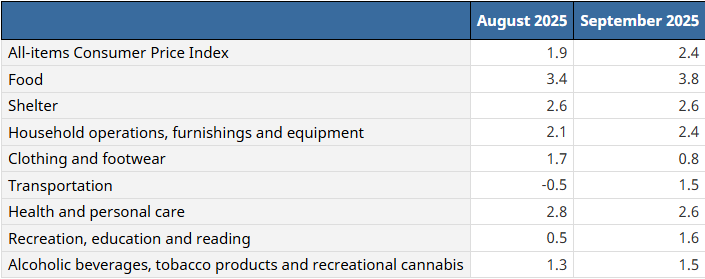I’m picky. I don’t mean in the “I hate vegetables” sense, although that is true as well, I mean it in the “if something is worth doing, it’s worth doing well” sense. Do your job and do it well!
In my last article, I took issue with Substack and “humor” writers. This week I’m going after my long-time punching bag, the press.
This isn’t the first time I’ve criticized them, and it won’t be the last. It’s no secret that I find them to be biased purveyors of political narratives rather than dispassionate reporters of fact. However, this time my issue isn’t so much that they’re a bunch of biased liars as it is that they do a bad job of reporting.
Take this recent article I came across from CTV News:
Rising grocery prices are one of the culprits driving inflation
Everyone knows that grocery prices have been rising. As the article points out, “new data from Statistics Canada shows that rising food prices are a key factor in driving inflation higher. The federal agency revealed that consumers paid 4% more year-over-year for food purchased from stores in September, following a 3.5% increase in August.”
The question isn’t “are grocery prices rising?” but rather “are grocery prices causing inflation or rising because of it?”
Many factors can contribute to price increases, including higher input costs (ex. fuel, wages), supply chain disruptions, trade wars, etc. The following table provides some examples:
Occasionally, sharp increases in food prices can trigger or amplify inflation, especially in countries where food makes up a big share of consumer spending; however, most of the time, inflation causes food prices to rise. The problem with blindly attributing inflation to grocery prices is that it enables left-wing politicians to blame corporations for problems they may well have caused by implementing bad government policies:
Inflation: Why Canada grocers are accused of ‘greedflation’
Democratic Senators’ Bad Excuse for Inflation
This in turn leads to policy “solutions” that are even worst than the policies that caused the problem in the first place like Zohran Mamdani’s plan to create a network of government-run grocery stores.
What’s going on with this article?
It would be easy to blame this type of writing on the typical biased left-wing narrative that blames corporations and billionaires for all the inequality in society. That may be the case, and given that Kathy Le, the author of the piece, wrote a documentary entitled “Covid-19: The Spread of Racism,” it is tempting to dismiss it as such. However, I’m more inclined to blame ignorance, laziness, clickbait, or some combination of the three.
Ms. Le, like most journalists, writes on many subjects and cannot be an expert in all of them. Ms. Le is well-educated, possessing a Bachelor of Science in chemistry and biology as well as a diploma in radio and television arts. She is not, however, an economist.
The article’s headline is inaccurate, either intentionally (clickbait) or unintentionally (laziness or ignorance). The article, however, is generally well written, attributing rising grocery prices to “supply shortages,” “high demand,” and “extreme weather.” Where it runs into trouble is in the first sentence, where it fails to understand the difference between inflation and the Consumer Price Index (CPI).
Inflation is the rate at which the general level of prices is rising (and purchasing power is falling).
The Consumer Price Index (CPI) is the measurement tool we use to estimate that rate
The CPI is a measure of inflation, not inflation itself. It would therefore have been more accurate to state that grocery prices were a key factor in driving CPI, not inflation.
Why does this matter?
“A republic, if you can keep it”
-- Benjamin Franklin
The quote above was Benjamin Franklin’s response to a group of citizens asking what sort of government the delegates had created. It is important because it reminds us that a democratic republic is not guaranteed and depends on the active, informed involvement of its citizens to prevent the government from becoming too powerful and to uphold its founding principles.
It is the job of the media to keep the citizenry informed. When the press is biased, ignorant, or lazy, the system begins to fail.
If the story is worth reporting, it’s worth reporting accurately.
As I said earlier, I’m picky.
Phil is a freelance writer, Canadian Navy veteran, and classical liberal. He has lived and worked in both Canada and the United States and currently resides in Vancouver, British Columbia where he writes on politics, individual rights, free speech, and anything else that catches his fancy.
As politics and the never-ending culture war are exhausting, he has also begun trying his hand at humor. You can find some of what he finds funny here:
If you enjoyed this article please consider sharing your thoughts in the comments, subscribing, or even buying him a coffee if you’re feeling generous and felt that this was a particularly enjoyable article. Your attention, participation, and support really make a difference to us.
Wrong Speak is a free-expression platform that allows varying viewpoints. All views expressed in this article are the author’s own.








Terrific article. You're correct: Neither journalists nor their readers have even a rudimentary understanding of economics. It's becoming increasingly obvious that the subject should be taught at the high school level so citizens won't be so easily tricked by propagandists. But in Canada, there is little doubt that this mandatory course, developed by government and teachers' unions, would be presented as, "ECN 101: Introduction: Why Capitalism Must Be Abandoned."
It's just generally unknown that exogenoud changes in individual prices even of an important group of prices ("groceries," "tradables") cannot cause inflation unless the central bank allows it to do so.
One reason this is hard to undestand is that often a central bank will have good (real income maximiaing) reason [about half of Radical Centrist posts aims at explaining this] to allow some extra inflation in response to a price shock. So in a pure post hoc ergo propeter hoc view, it looks like the price change "caused" the inflation. With a certain expansive view of "cause" that woud be right.